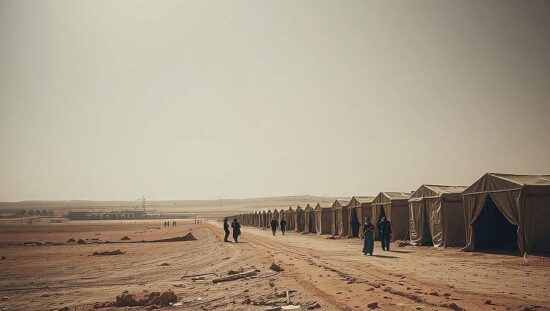The United Nations’ refugee agency is issuing a stark warning against plans by the German government to repatriate Syrian asylum seekers, arguing such actions risk exacerbating an already precarious humanitarian situation within Syria and across the region. Gonzalo Vargas Llosa, head of the UN Refugee Agency’s operations in Syria, cautioned that while approximately one million Syrian refugees have returned to their homeland this year and another million are anticipated next year, Syria’s capacity to absorb them is rapidly diminishing.
The warning comes as German Interior Minister Alexander Dobrindt signals a push for agreements with Syria aimed at deporting criminals and individuals lacking residency permits, a policy requiring the resumption of suspended asylum decisions. While the German government frames this as alleviating pressure on its own asylum system, Vargas Llosa contends that forced returns are rarely sustainable and risk triggering further displacement. Returning individuals, he explains, often find conditions untenable and are compelled to migrate again, placing an additional strain on neighboring countries like Jordan and Lebanon, which are already overwhelmed.
Vargas Llosa’s concerns extend beyond the immediate repatriation plans. He also criticizes the recent reduction in humanitarian aid from numerous countries, including Germany, deeming it a critical misstep. This curtailment has forced the UNHCR to close 40 percent of its 122 regional support centers within Syria-a devastating blow to vital assistance efforts. He emphasizes the severity of the Syrian refugee crisis, describing it as an exceptionally rare opportunity for resolution – an opportunity he argues risks being squandered by short-sighted policies. Critics within Germany have already voiced concerns about the ethical implications of forced returns given the ongoing instability and potential for human rights violations within Syria and question the feasibility of ensuring the safety and well-being of those returned. The situation underscores the complex and contradictory demands of managing a global refugee crisis while navigating domestic political pressures.





